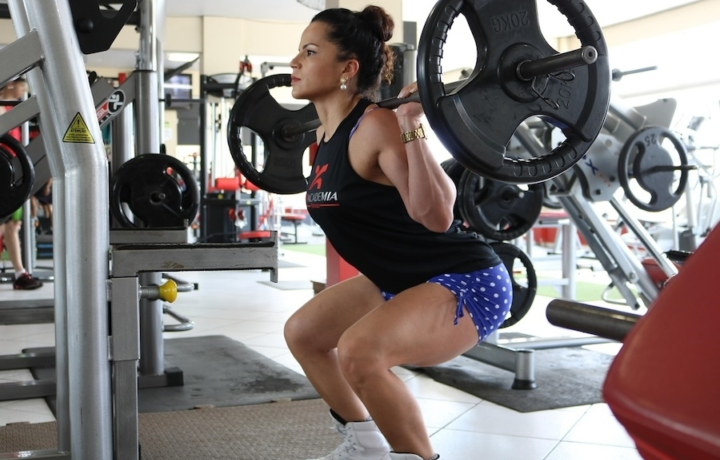Build functional strength and explosive power
Kettlebell
Kettlebell exercises combine strength training with cardiovascular conditioning in a single, efficient workout tool. The unique design and offset weight distribution challenge your body in ways traditional weights cannot, developing functional strength, power, and endurance while improving coordination and core stability.
Focus on
Pick your muscle groups
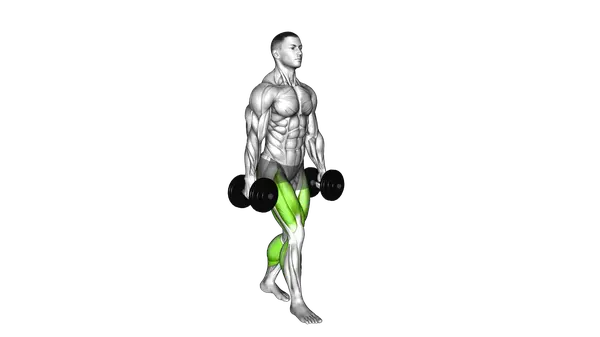
Farmers Walk
The Farmers Walk is a loaded carry exercise that builds grip strength, full-body stability, and posture under continuous tension.
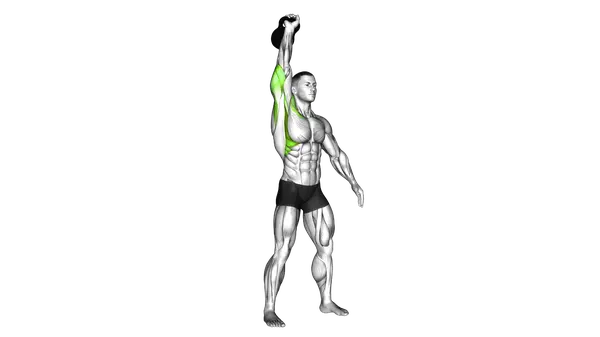
Kettlebell Arnold Press
The Kettlebell Arnold Press combines a rotating press with an offset load to build shoulder strength, control, and coordination.
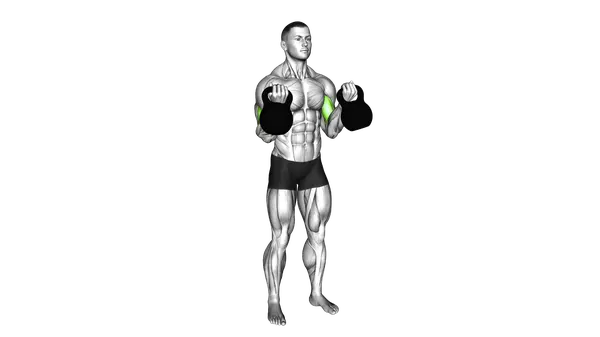
Kettlebell Biceps Curl
The Kettlebell Biceps Curl is a strength-focused arm exercise that challenges your biceps while also demanding more control and stability than a standard dumbbell curl.
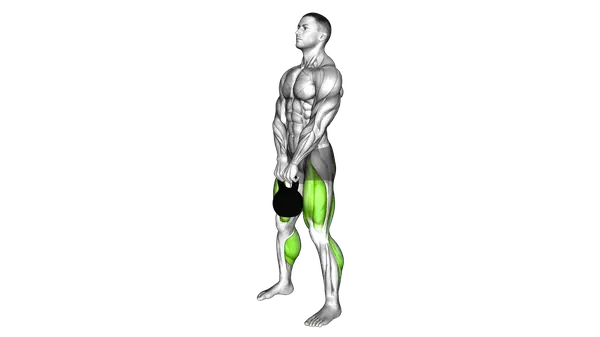
Kettlebell Deadlift
The Kettlebell Deadlift is a simple hip hinge exercise that builds full lower-body strength while reinforcing safe lifting mechanics.
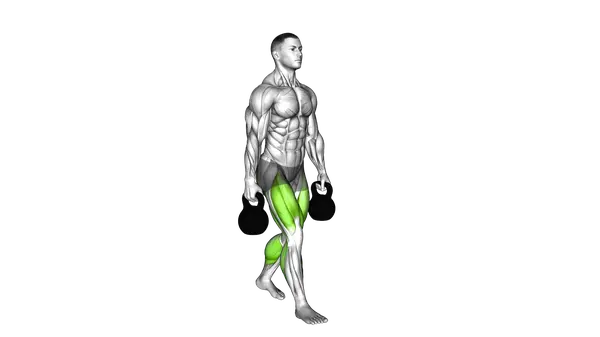
Kettlebell Farmer's Carry
The Kettlebell Farmer’s Carry is a full-body strength and conditioning exercise that builds grip strength, core stability and total-body control.
Built for Progress
Take the Guesswork Out of Training
Create personalized AI-powered workout plans that evolve with you. Train smarter, track every rep and keep moving forward.
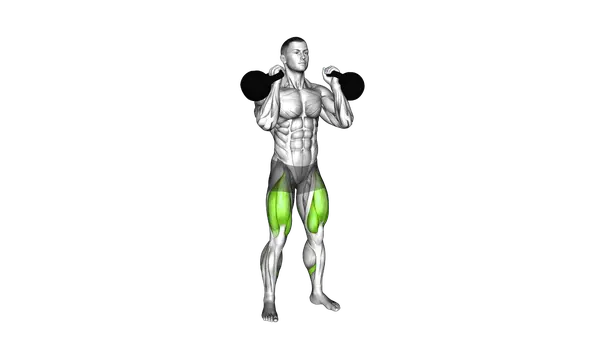
Kettlebell Front Squat
The Kettlebell Front Squat is a squat variation that builds leg and glute strength while challenging posture and control through a front-loaded position.

Kettlebell Goblet Squat
The Kettlebell Goblet Squat is a squat variation that builds leg and glute strength while encouraging an upright position and controlled depth.
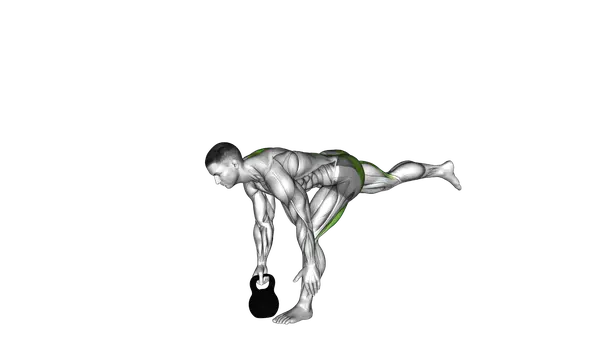
Kettlebell One Legged Deadlift
The Kettlebell One Legged Deadlift is a single-leg hinge exercise that builds strength, balance, and control through the hips and legs.

Kettlebell Russian Twist
The Kettlebell Russian Twist is a rotational core exercise that builds abdominal strength and controlled power through the midsection.
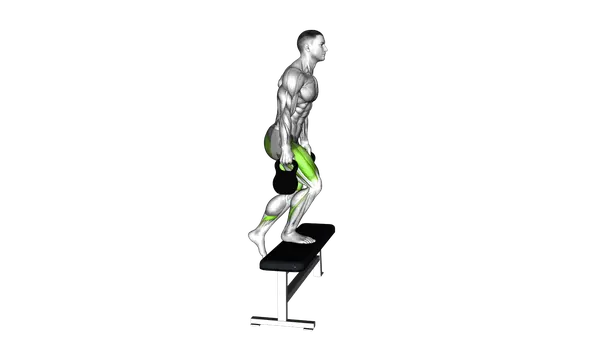
Kettlebell Step Up
The Kettlebell Step Up is a single-leg strength exercise that builds leg power and control by stepping onto an elevated surface with added load.
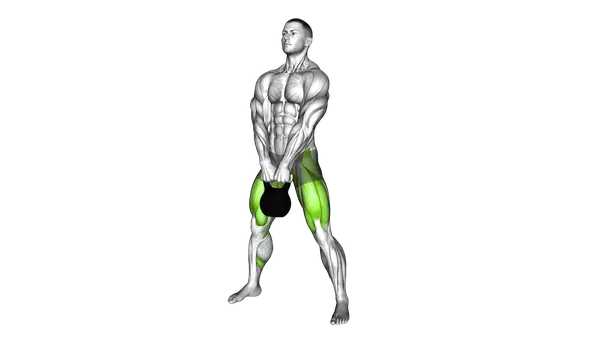
Kettlebell Sumo Deadlift
The Kettlebell Sumo Deadlift is a lower-body strength exercise that uses a wide stance to build power in the legs and hips.
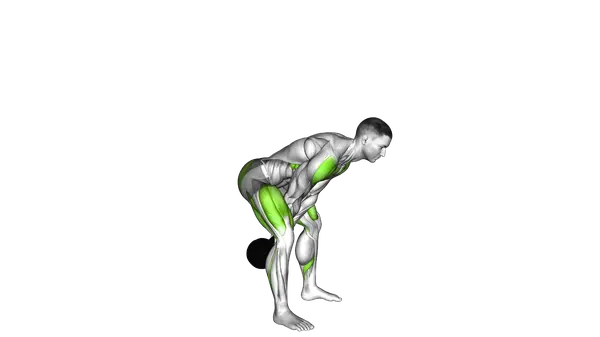
Kettlebell Swing
The Kettlebell Swing is a full-body strength exercise that builds power in the hips while improving work capacity and lower-body endurance.

Kettlebell Upright Row
The Kettlebell Upright Row targets the shoulders and upper back, combining controlled pulling with upright posture for upper-body strength.
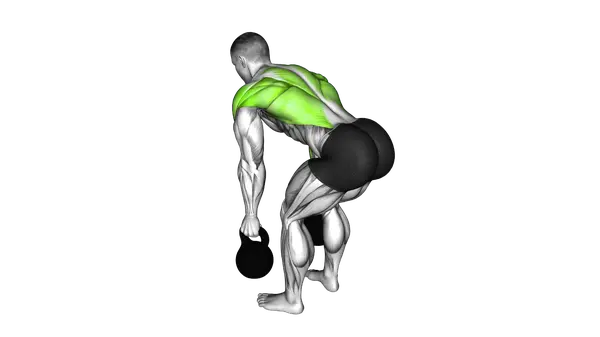
Two-Arm Kettebell Row
The Two-Arm Kettlebell Row is a compound pulling exercise that builds upper-back strength while reinforcing a stable hip hinge and strong posture.
Why kettlebell training should be the foundation of functional fitness
Training goals for kettlebell development
Kettlebell training delivers unmatched benefits for building real-world strength and athleticism. The dynamic movements engage multiple muscle groups simultaneously while challenging your cardiovascular system, creating a time-efficient approach to total-body conditioning that transfers directly to sports and daily activities. The ballistic nature of kettlebell exercises like the kettlebell swing and kettlebell sumo deadlift develops explosive hip power that's essential for athletic performance.
Unlike static weight training, kettlebell exercises force your body to stabilize and control the weight through multiple planes of motion. This develops the kind of functional strength and coordination that enhances everything from carrying groceries to playing recreational sports, while building lean muscle mass and burning significant calories.
Essential movements to master
Best kettlebell exercises for strength and size
Foundational to all kettlebell training, the kettlebell swing targets your posterior chain while providing intense cardiovascular conditioning. Complementing this power movement, the farmers walk develops incredible grip strength and core stability while working your entire body through functional movement patterns. Upper body strength comes from exercises like the kettlebell arnold and kettlebell biceps curl, which challenge stabilization while building muscle mass.
Hip-dominant movements including the kettlebell deadlift and kettlebell sumo deadlift teach proper mechanics while developing massive pulling strength through your legs, glutes, and back. Complex movements like the kettlebell goblet squat and kettlebell front squat build lower body strength while demanding core engagement and mobility. Unilateral challenges such as the kettlebell step up and kettlebell farmer's carry address common imbalances between sides while improving stability.
Strategic integration for optimal functional fitness results
Training plans featuring kettlebell exercises
Kettlebell exercises integrate perfectly into circuit training, HIIT workouts, and strength-focused sessions. The versatile nature allows for seamless transitions between movements, creating time-efficient workouts that challenge both strength and cardiovascular systems simultaneously. Training frequency typically involves 2-3 kettlebell sessions weekly, allowing adequate recovery between intense full-body sessions. Beginners benefit from mastering basic movements like the kettlebell deadlift and farmers walk before progressing to complex exercises like the kettlebell russian twist and kettlebell upright row.
Progressive overload occurs through increased repetitions, extended time under tension, or advancing to heavier kettlebells. The kettlebell goblet squat might begin with bodyweight mastery before adding a light kettlebell, then progressing to heavier weights or more challenging variations like the kettlebell front squat.
The app helps you create a personalized training plan that aligns with your goals: whether that’s building muscle, gaining strength, or improving mobility and includes the right kettlebell exercises based on your level and available equipment.
Frequently asked questions about kettlebell exercises
Focus on hip-dominant movements like the kettlebell swing and kettlebell deadlift to maximize posterior chain development. Master the basic movement patterns before advancing to complex exercises like the kettlebell arnold or two-arm kettlebell row. Maintain proper breathing patterns during ballistic movements, and prioritize quality over quantity - perfect reps with moderate weight outperform sloppy technique with heavy loads.
Kettlebell exercises can effectively target every major muscle group shown in the interface. The posterior chain responds exceptionally well to the kettlebell swing and kettlebell deadlift, while chest and shoulder development comes from the kettlebell arnold and kettlebell upright row. Leg strength builds through the kettlebell goblet squat and kettlebell step up, and core stability develops naturally through exercises like the kettlebell russian twist and farmers walk.
Begin with a moderate weight that allows perfect form - typically 8-12kg for women and 12-16kg for men for basic movements like the kettlebell deadlift. Start lighter for complex exercises like the kettlebell arnold or kettlebell one legged deadlift. Focus on mastering movement patterns before increasing weight, as proper form is essential for both safety and effectiveness.
Kettlebells excel at functional movement patterns and power development but work best as part of a complete training program. While exercises like the kettlebell goblet squat and kettlebell biceps curl provide excellent muscle development, combining kettlebells with other equipment offers the most comprehensive training approach for maximum strength and muscle gains.
Most people benefit from 2-3 kettlebell sessions weekly, allowing 48-72 hours recovery between full-body sessions. The intense nature of exercises like the kettlebell swing and kettlebell sumo deadlift requires adequate recovery time. Beginners might start with 2 sessions weekly, while experienced lifters can handle 3-4 sessions with proper programming.
Integrate kettlebell exercises into full-Body and Split Routines

